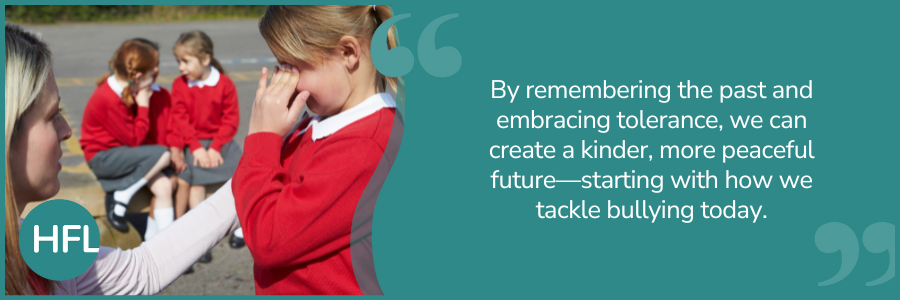
As the first half term draws to a close, I find myself looking ahead to the changing weather, the return of hats and scarves, and the arrival of festive celebrations. I can't think of the Autumn term without recalling the famous rhyme drilled into my memory in primary school: "Remember, remember the 5th of November." I also reflect on Armistice Day, 11th November, which this year marks 105 years since the end of World War I.
These two deeply ingrained historical dates, commemorating events separated by over 300 years but marked just six days apart, share an undeniable commonality. They remind us of the consequences of intolerance, loss, and the destructive nature of plots, schemes, and wars—the scars of which endure through time. However, they also inspire hope—hope that we can learn from the mistakes of the past, and hope that by being kind, tolerant, accepting, and embracing of differences, our society can become happier and more peaceful.
Is it a coincidence that November is also the month when we mark and celebrate anti-bullying events – Anti-bullying week and the International Day for Tolerance? Perhaps. But for me, there is a powerful connection between remembering the past and striving for a better future.
According to the Office for National Statistics, in their report bullying and online experiences among children in England and Wales: year ending March 2023 an estimated 1,544,000 children aged 10 to 15 years (34.9%) experienced in-person bullying behaviour, and 847,000 children (19.1%) experienced online bullying behaviour in the last year. While there was no significant difference in the estimated number of girls and boys who experienced in-person bullying, the prevalence of online bullying was significantly higher for girls (486,000; 22.5%) than boys (361,000; 16.0%).
Locally, data from suspensions and permanent exclusions in England reveals that while there has only been one permanent exclusion in Hertfordshire citing bullying as a reason since 2020/2021, suspensions for bullying have nearly doubled, from 96 in 2020/2021 to 184 in 2022/2023.
Schools and settings are well aware of the short and long-term impacts of bullying on their students, and significant efforts have been made to tackle bullying behaviours. This is a continuous journey, requiring ongoing review and refinement of strategies and approaches to meet the needs of current cohorts.
Key strategies for consideration:
- Review policy with stakeholder input.
- Analyse data identifying any patterns and trends within cohorts and groups.
- Engage pupil voice in discussions about school culture.
- Integrate PSHE/RSHE curriculum effectively.
- Prioritise online safety education for staff, students and parents/carers
- Embed anti-bullying and wellbeing weeks in the school calendar.
Look out for Part 2 of this blog, which will provide valuable links and resources to assist your school in embedding and supporting anti-bullying activities during anti-bullying week and beyond.



